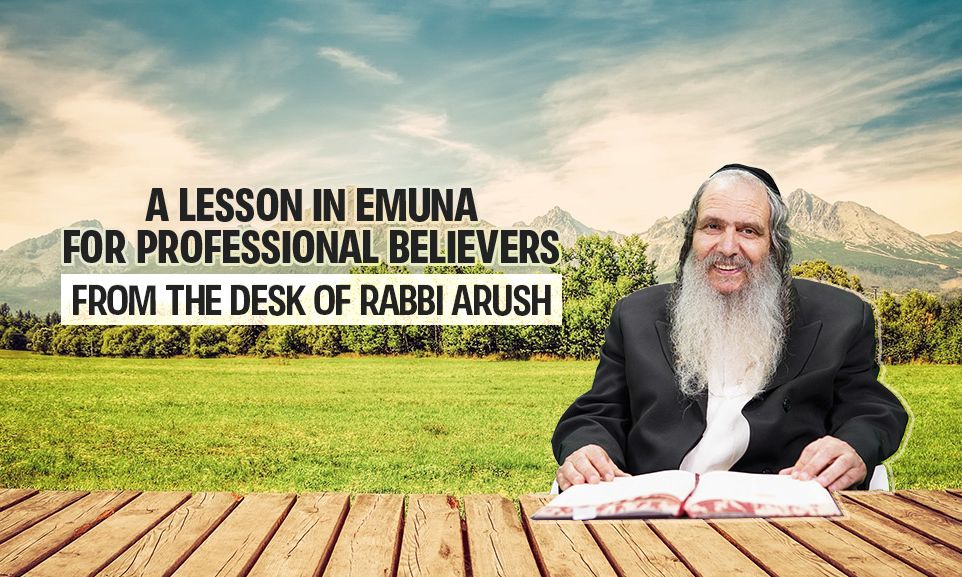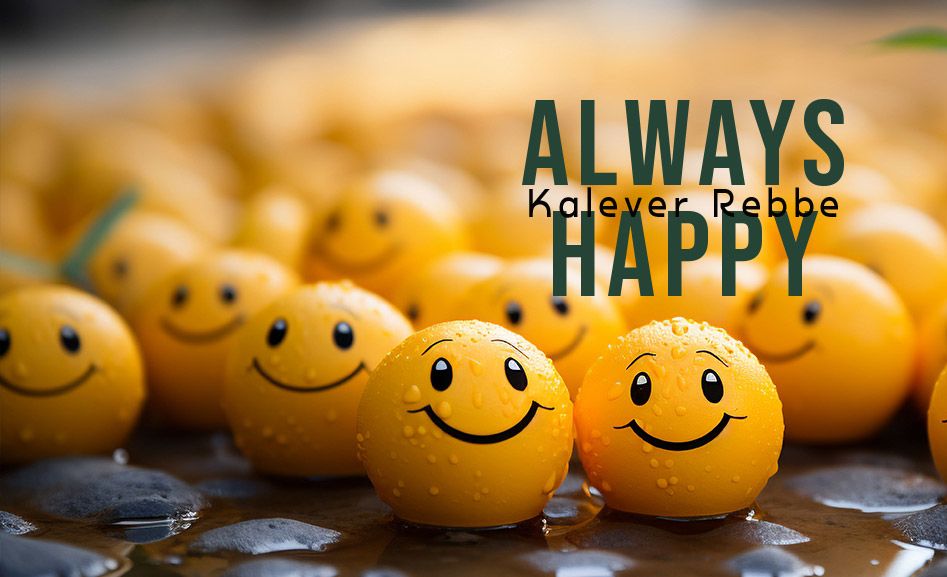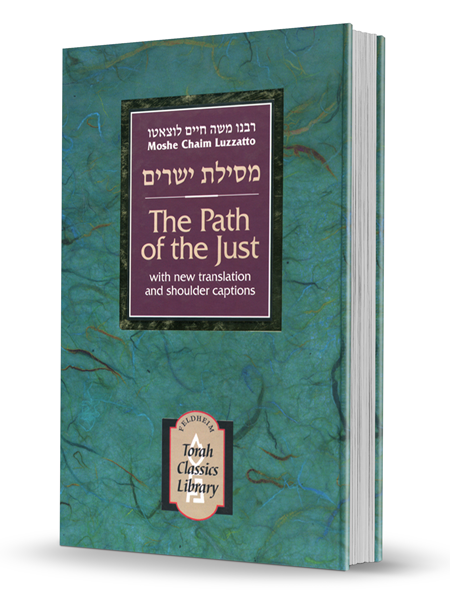
A Lesson in Emuna for Professional Believers
Is Hashem ‘out to get you’? Is He just waiting for the moment you will fail so He can punish you? Maybe He likes to make you miserable? Or, is He a loving Father and it pains Him to see you failing and it pains Him when He has to punish, and He only wants to see you succeed?

Translated from Rabbi Arush’s feature article in the weekly Chut shel Chessed newsletter. The articles focus on his main message: “Loving others as yourself”.
Nothing to be Jealous of
Yehuda sat in front of me, and I saw that he was resisting and not willing to agree with anything I was saying. Yehuda was not the first to tell me about emotional distress. He is a respectable, well-established person, quite successful in his work, and has a fine family. Looking from the outside, his life is beautiful, successful, and calm, with him being the target of jealous feelings on the part of quite a lot of his friends and acquaintances.
None of them would be able to imagine that Yehuda’s life is a nightmare. He has no day and no night. He suffers from very severe anxiety. Anxiety attacks can put him out of commission for hours at a time. He is dependent on medication and various psychological treatments of limited efficacy. Life is terribly hard for him.
The Plague of the Generation
I am pained and sorry to say that I hear about many cases like this. We heard of things like this in the past, but today it seems to be a raging plague.
And I, I stick to the words of Rabbi Nachman who said, “Emuna (faith) and the soul are one”: I know that emuna is the only true cure for all these anxieties.
Anxiety is really a faith. But it is a bad, mistaken faith. A degenerated faith. The person believes that bad things will happen to him, and therefore he is anxious. If so, the root for the cure for anxiety is only the true and pure emuna that “There is none other than Him” – Ein od milvado, and that there is no badness in the world and that Hashem does only good and only wants to do good.
That is the human psyche in a nutshell.
Of course, it has infinite depth, and it is necessary to provide practical explanations. But all in all, it is very simple. Jews who paid attention to my advice and devoted fifteen minutes a day to repeating out loud the foundations of true emuna have reported to me about amazing improvements. They just sat and repeated statements of emuna: “Hashem does only good. Hashem loves me. Hashem will do good to me and I will have only good and even more good.” That is the correct and healthy emuna. These words entered their hearts and healed their inner emuna, because speech awakens emuna, as it says, “I had emuna because I spoke”. That is the only effective treatment. Because any other treatment acts chemically on the neurons of the brain, or externally on the behavior, and doesn’t touch the actual soul. But the emuna, which is the actual soul, heals and repairs the actual soul.
You’re not Going to Teach Me
But Yehuda is no pushover. He has a rich religious background and clear and well-grounded ideas about emuna. He knows sayings of Chazal, and one can’t fool him.
It was, indeed, hard for him to answer me, but in the end, he hurled at me everything that was bothering him: “How can you say that Hashem will do only good to me? Chazal say specifically that Hashem isn’t mevater (forgiving for nothing), and there is reward and punishment. I am a sinner and I know that I deserve to be punished. How can I lie to myself and think that Hashem will do only good things to me?”
“Wait a minute,” I stopped him. “You don’t believe that Hashem is good and does good, and that He is a loving father? As much as I am familiar with the sources, that too has some sources. I didn’t make it up…”
“Of course, I believe in that,” Yehuda replied, as if he knows it all. “Don’t forget, Rabbi, I learned in yeshivas. I don’t need people to explain to me what emuna is. But I already explained to the Rabbi: I am a sinner and I deserve some punishments, and there’s nothing to be done about it. Hashem will surely punish me…”
Whom do You Believe in?
“Oh… Now I understand. You simply need to get things straight,” I said. “Listen, my dear Yehuda, you are right. You have committed sins. But you believe that Hashem is a loving Father. So, let’s think together what does Hashem want: Does He want to punish, or does He want you to repent?
“Or, maybe we should define it more clearly: Is Hashem ‘out to get you’, and has waited so much for the moment you will fail so He will be able to punish you, because He just ‘feels like’ making you suffer, chalila? Or is Hashem a loving Father and it pains Him to see you failing and it pains Him when He has to punish, and He only wants to see you succeeding both in material and in spiritual matters, and even if you sinned, He is waiting and wishing and willing to help with all His powers so that you will do teshuva? Do you know a father who wants to punish?”
Here is where the “solid” ideas of Yehuda regarding emuna began to waver. Or, more correctly, he finally began to understand that something is very wrong with his ‘emuna’. His emuna in the true and holy statements of Chazal that Hashem is not a vatran, and that there is reward and punishment, made him forget the foundations of emuna in Hashem’s love, and that “Hashem does not want the person to die; rather, He wants him to repent”, and other sources like that – a great many. He forgot Chazal’s statements that Hashem Himself is in pain when a Jew is in pain, as it says, “In all their troubles He is troubled”. He completely forgot that Hashem is good and does good, and only wants to do good, and “the bad things won’t come from Him…”
Emuna as Opposed to Imagination
Yehuda only nodded, indicating that the answer to the question was self-evident. And I continued: “Yehuda, it’s true that you sin. Every person sins, because there is no righteous person on earth who does good and does not sin. Hashem created us that way not in order to punish us but only because He wants to help us move forward and improve ourselves. That is the purpose of our creation. For that purpose, He gave us the mitzvah of repentance, teshuva, which is a very easy and simple mitzvah.
“But the mitzvah of teshuva is based on the absolute emuna, really and truly, that Hashem loves us and wants our repentance, and wants to help us.
“The entire power of the yetzer hara (the evil inclination) is to paint Hashem as being revengeful and punishing, as if He doesn’t love us, chalila, and as a result we give up on doing the easy and simple mitzvah of teshuva. That is not emuna. That a misleading imagination. Therefore, Rabbi Nachman said that today, the yetzer hara is called “the power of imagination”. It takes over a person’s emuna and instead of imagining the Creator as He is – a merciful, good Father – the yetzer hara shows us the Creator as an angry, cruel and abusive god, rachmana litzlan.
“See for yourself: Does your ‘faith’ in a ‘punishment’ advance you? Does it help you improve yourself and change things for the good? No, no! Not only does it impede your personal development, and even set you back, but it also destabilizes your mental health.
The Only Punishment
“As for punishments, the goal of Hashem’s punishments is not revenge; rather, they are like a loving father preventing his son from touching fire, so that he won’t be burnt. So we have no reason to fear punishment, because the punishment, too, is for our good, and is coming to protect us and straighten us out, and certainly not to hurt us.
“The only punishment in this world is the punishment a person brings upon himself, when he stubbornly sticks to his distorted emuna that Hashem is bad. In doing so, he detaches himself from the Creator’s goodness and brings upon himself suffering and emotional distress. Start to believe truly and stop punishing yourself. Therefore, the statements of emuna that I advise you to repeat every day – those are your cure.”
And I turn to all my readers: after all the sins, Hashem loves you. He is with us in all our impurities. Even if you sinned, before you envision Hashem as a “punisher” and start to “be afraid”, first remember that Hashem is a loving Father, who does not want to punish, and it hurts him to punish. He just wants you to open your mouth and say to him: “Father, I’m sorry, help me not to sin anymore.”
I am asking each and every one of you to find time for yourselves to repeat out loud, again and again, every day, the foundations of faith, that Hashem is a good and beneficial Father and that He will do only good to you.
And I did not Consume
In Parshat Pinchas, Hashem praises Pinchas so much, only because the last thing that Hashem wants to do is to punish. The great praise of Pinchas is that he performed an act of healing that in its merit, “I did not consume the Children of Israel in My vengeance.” The Children of Israel were in a terrible state, and almost brought upon themselves complete destruction. But Pinchas stood up and repaired the situation – and Hashem was so happy, because His will is that we should live and not die, and sanctify His Name in the world, through good and successful lives, and that is why He promises Pinchas a covenant of peace and everlasting priesthood!











Tell us what you think!
Thank you for your comment!
It will be published after approval by the Editor.